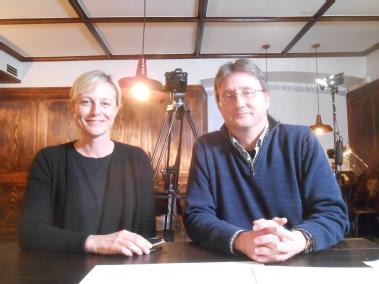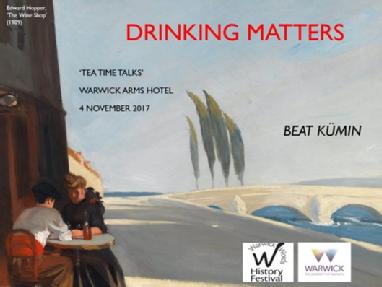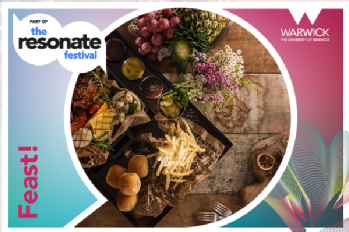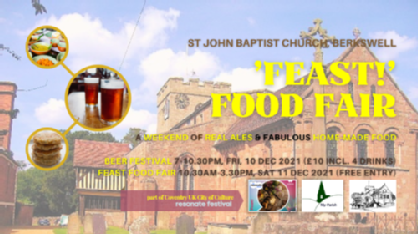Beat Kümin: Public Engagement
These pages highlight initiatives related to areas of my research - see also media work and learning resources.
Any questions or ideas for new projects? Please get in touch.
Food, Drink and Social Exchange
My research on historic drinking cultures has featured in newspapers (such as The Times,Link opens in a new window The GuardianLink opens in a new window, Swiss daily Der Bund), radio interviews (on drink statistics for Voice of Russia, the 'history of the picnic' for German station SWR 2 or the FEAST! festival on BBC Radio CWR) , TV programmes (like the Australian 'Who do you think you are?' with Marta Dusseldorp, filmed at a Swiss inn), online magazines (The ConversationLink opens in a new window) and public lectures (e.g. at Saarbrücken / Germany, Budapest / Hungary, Henan University / China or a History Festival at the Warwick Arms Hotel).


I helped to found the Drinking Studies Network and edited a survey work on early modern food culture. From 2014-18, I co-hosted the 'Summer University in Food & Drink Studies' of the European Institute for the History & Cultures of Food (IEHCA) at Tours / France and, in 2021, became the academic lead of Warwick's 'Food Cultures' research priority, where we organize webinars and other outreach activities.


From November 2021 to April 2022, I co-organized the FEAST! theme in the University's Resonate Festival for Coventry UK City of Culture 2021, featuring a series of Feast Food Festival videos examining celebratory dishes / drinks from the perspectives of producers, restaurateurs and researchers. A highly successful 'church ale' staged in partnership with My-Parish & St John the Baptist, Berkswell (25-26 March 2022) will be followed by the panel debate 'Rethinking Hospitality' on 20 April. The initiative attracted broad media coverage in Coventry and beyond.
Restoration of the Republic of Gersau: Bicentenary 1814-2014
For over 400 years, the parish of Gersau on Lake Lucerne formed a sovereign mini-state under the protection of the Swiss Forest Cantons and the Holy Roman Emperor. From the purchase of all feudal rights in 1390 to the French invasion in 1798, this rural commune passed its own laws, ran its own jurisdiction and maintained its own militia. It even appointed the local priest and wrote its own chronicles. Following the defeat of Napoleon, the Swiss were free to return to the old order. On 2 February 1814, the Landsgemeinde (communal assembly) decided to restore the independent republic. This was short-lived, however, and Gersau became a district of the Canton of Schwyz in 1818.


In the course of researching The Communal Age in Western Europe and a Bristish Academy project dedicated to rural republicanism, I devised a proposal for a series of 'Gersau 2014' bicentenary celebrations under the general theme of 'Geschichte Gestalten' (Shaping History). The project, also intended to reassess how Gersau sees its future, was officially endorsed by the district council and I joined its organizing committee (see my interviewLink opens in a new window in the regional newspaper Bote der Urschweiz). A Landsgemeinde in the parish church and 'Feast of the Republic' in the school served as launch events on 2 February 2014 (covered e.g. in the Wochen-ZeitungLink opens in a new window and a Swiss National Radio podcastLink opens in a new window). In March 2014, furthermore, I hosted a workshop on premodern republics (see video interviewLink opens in a new window) and chaired a public panel debate on the extent of Gersau's freedom past and present.
